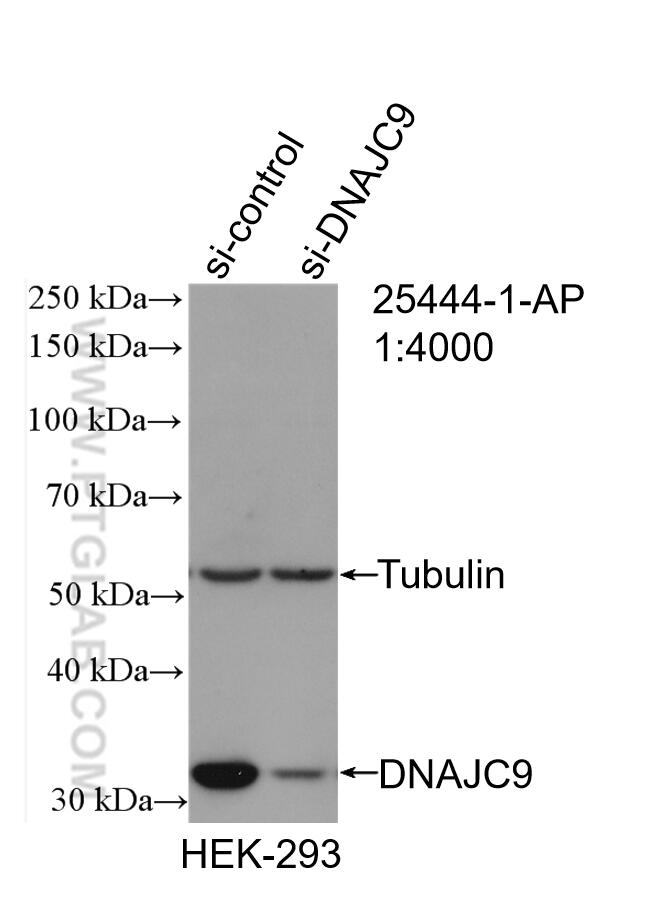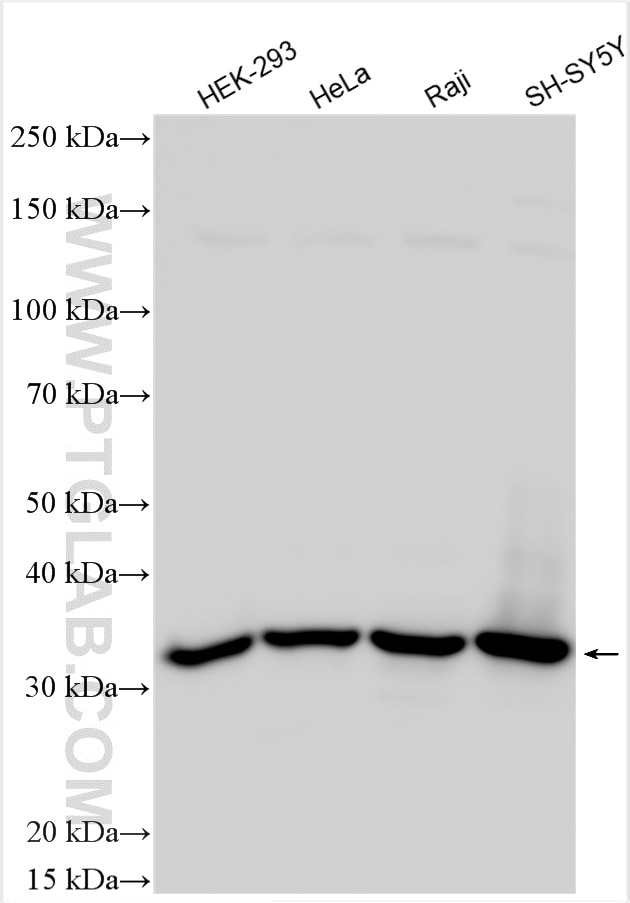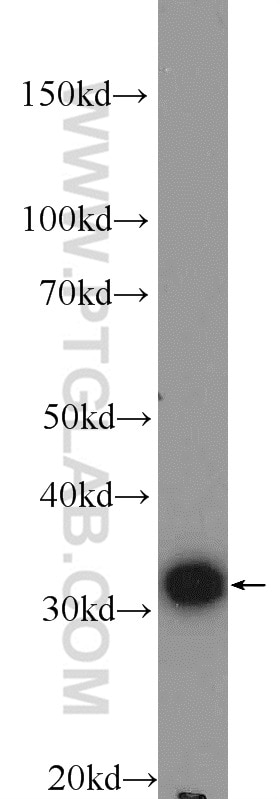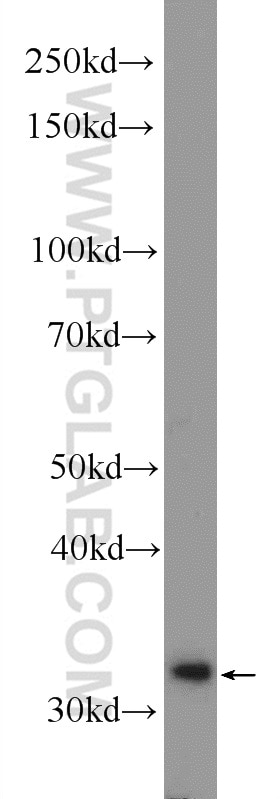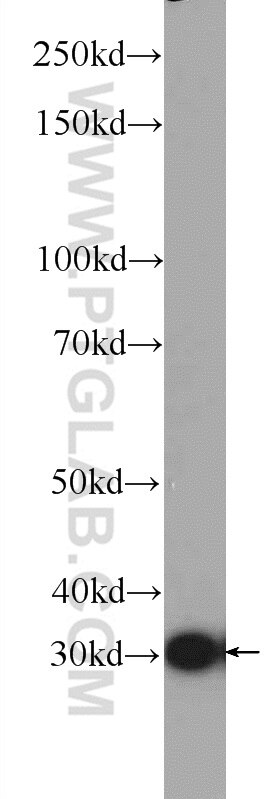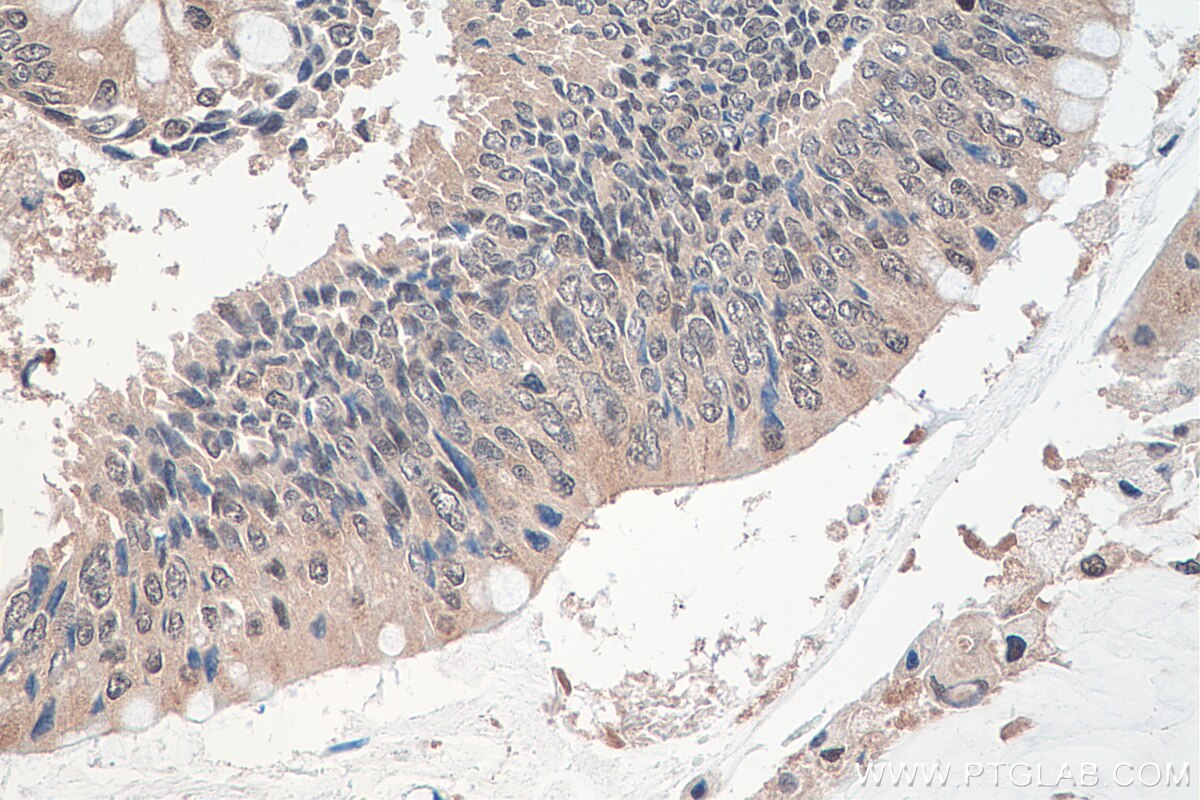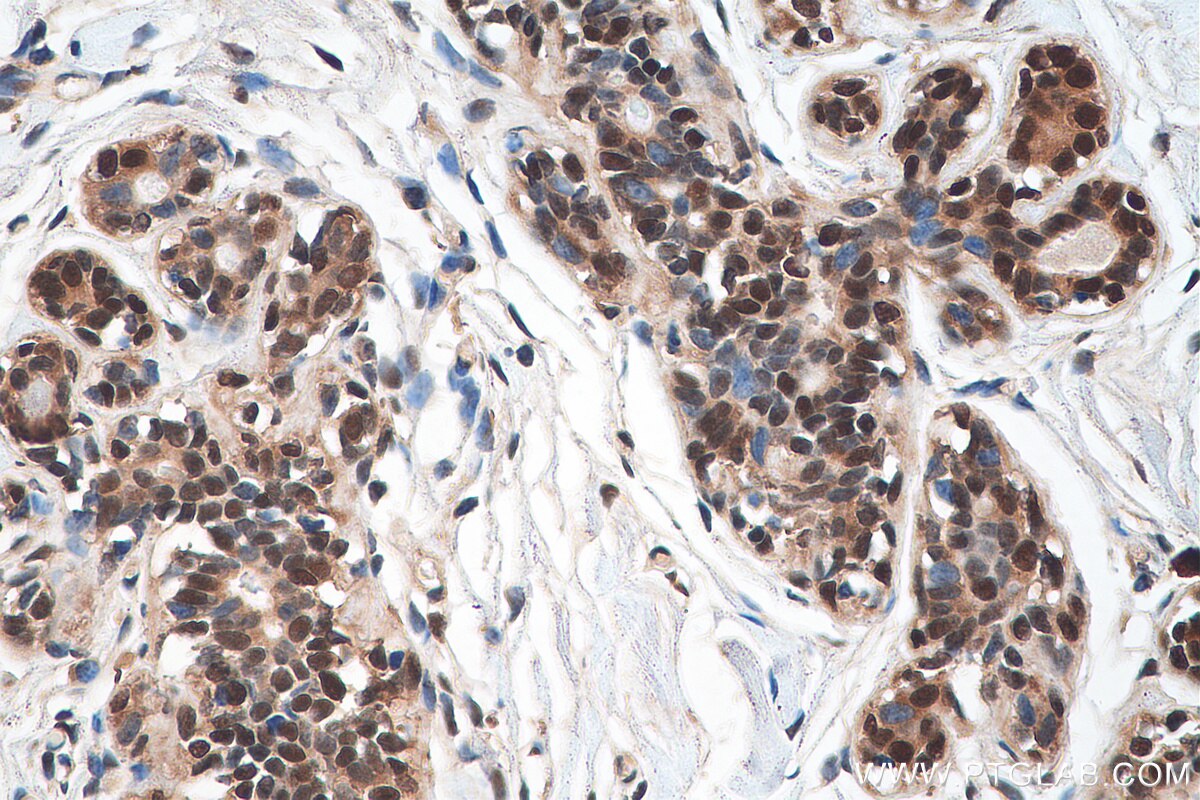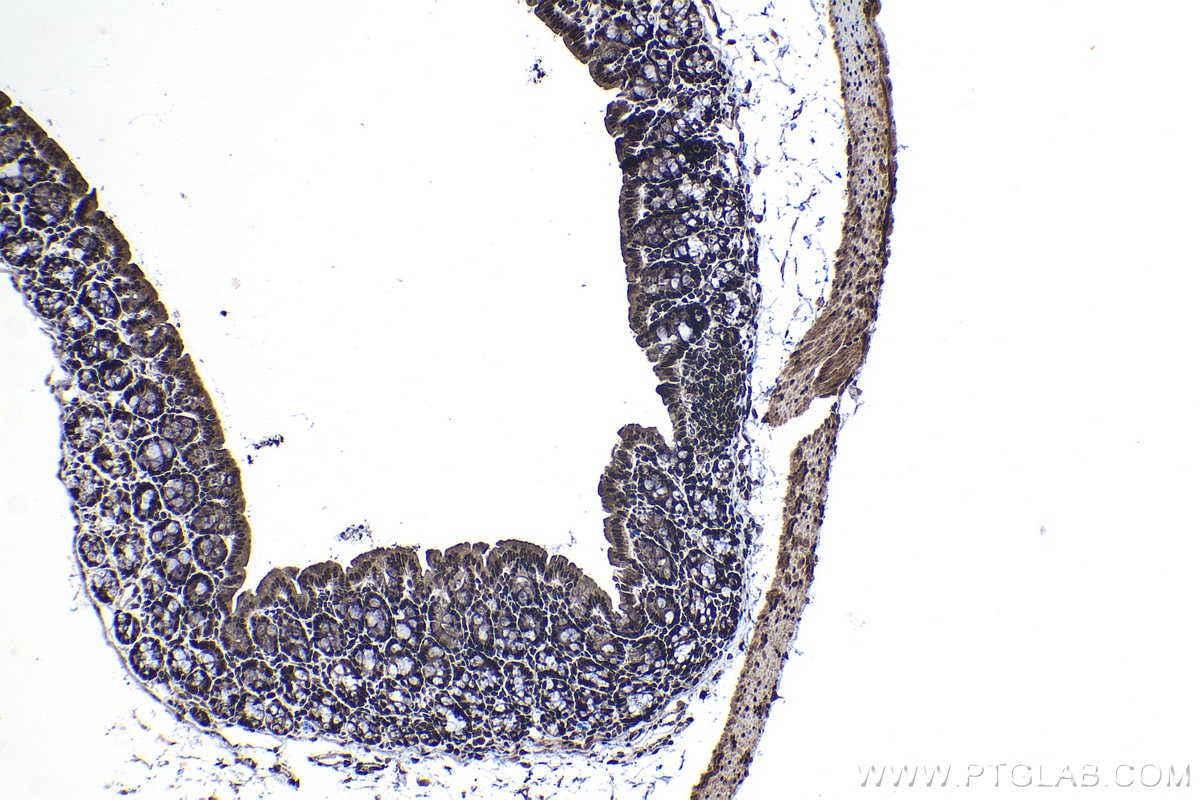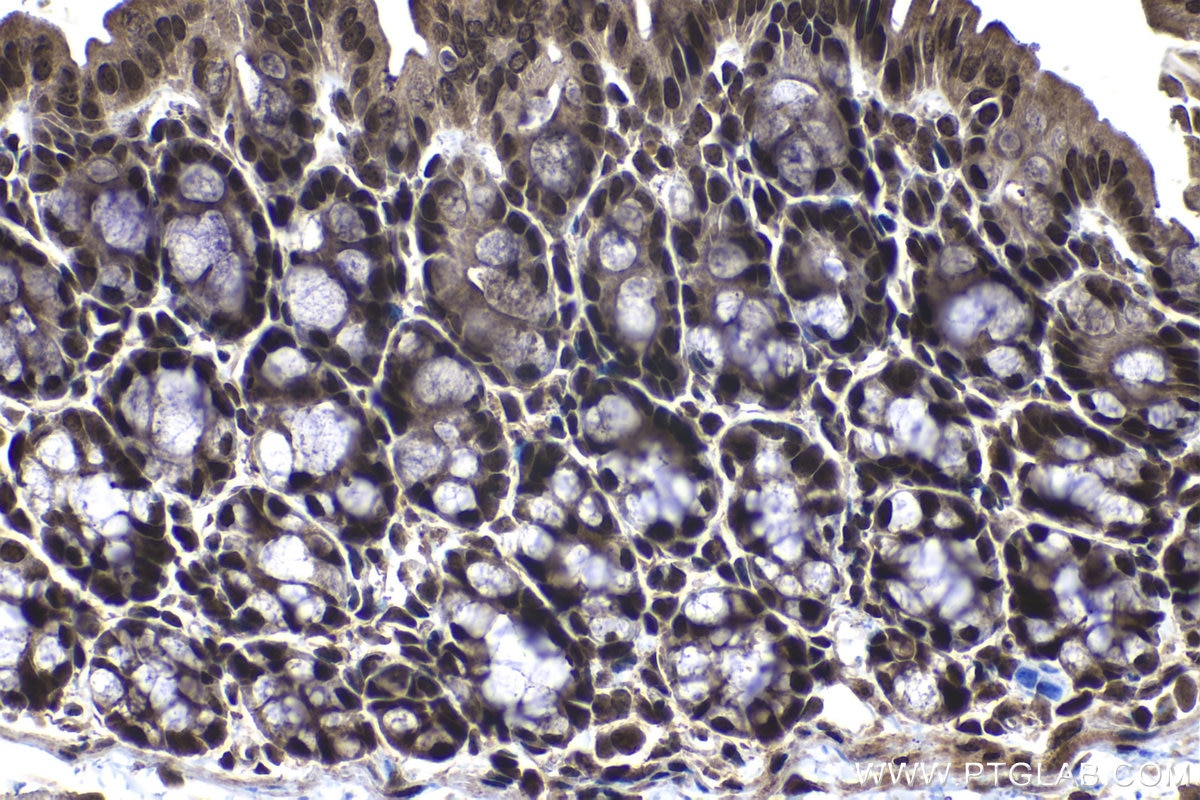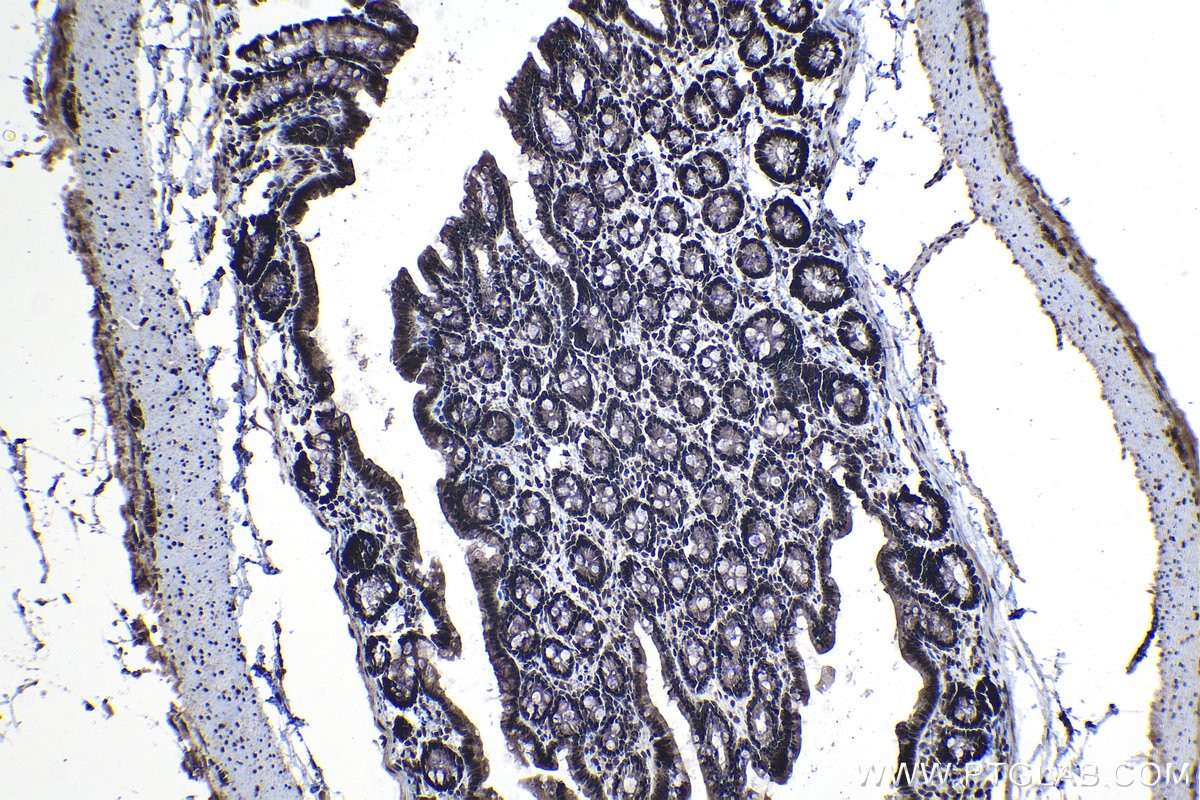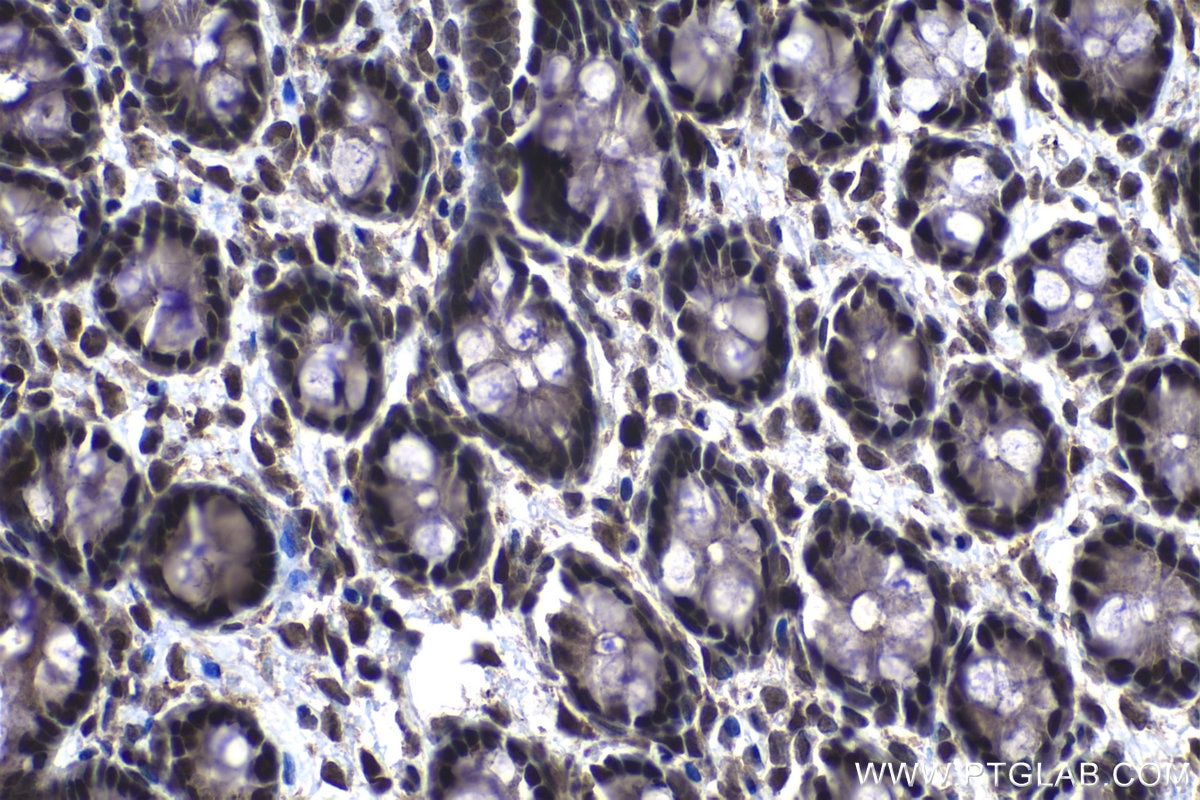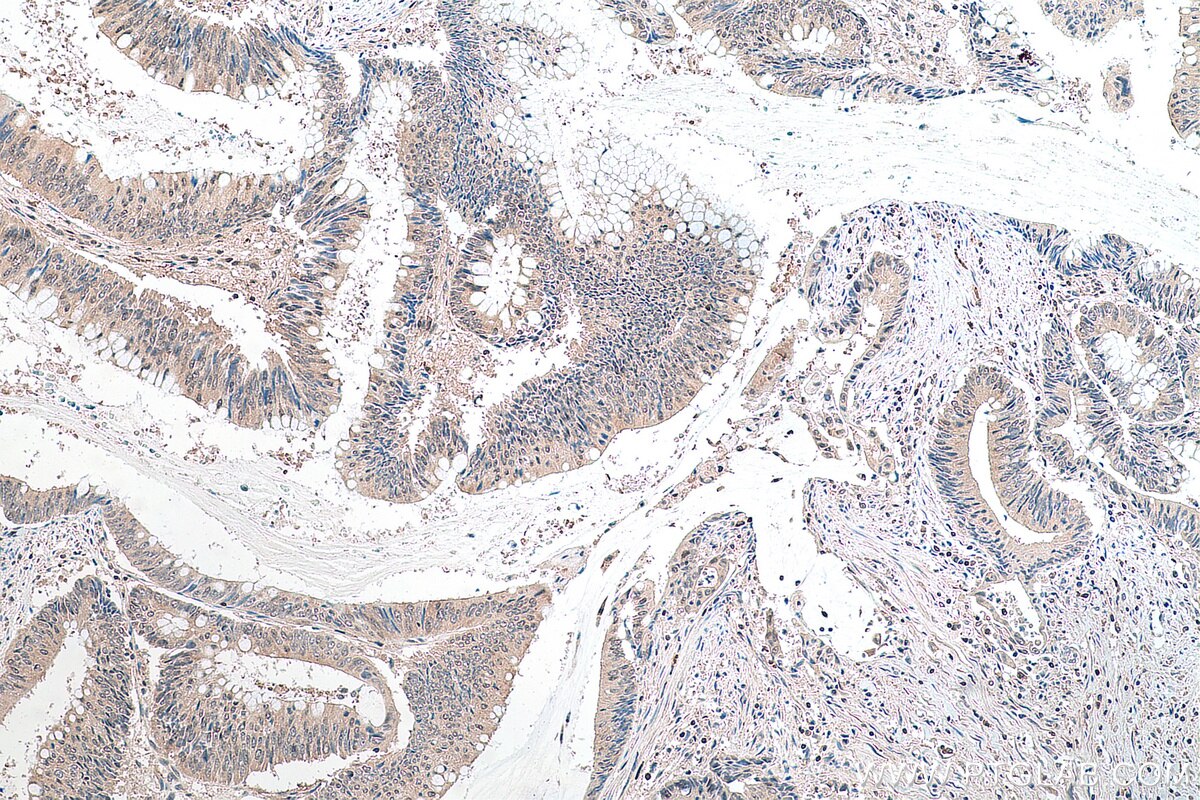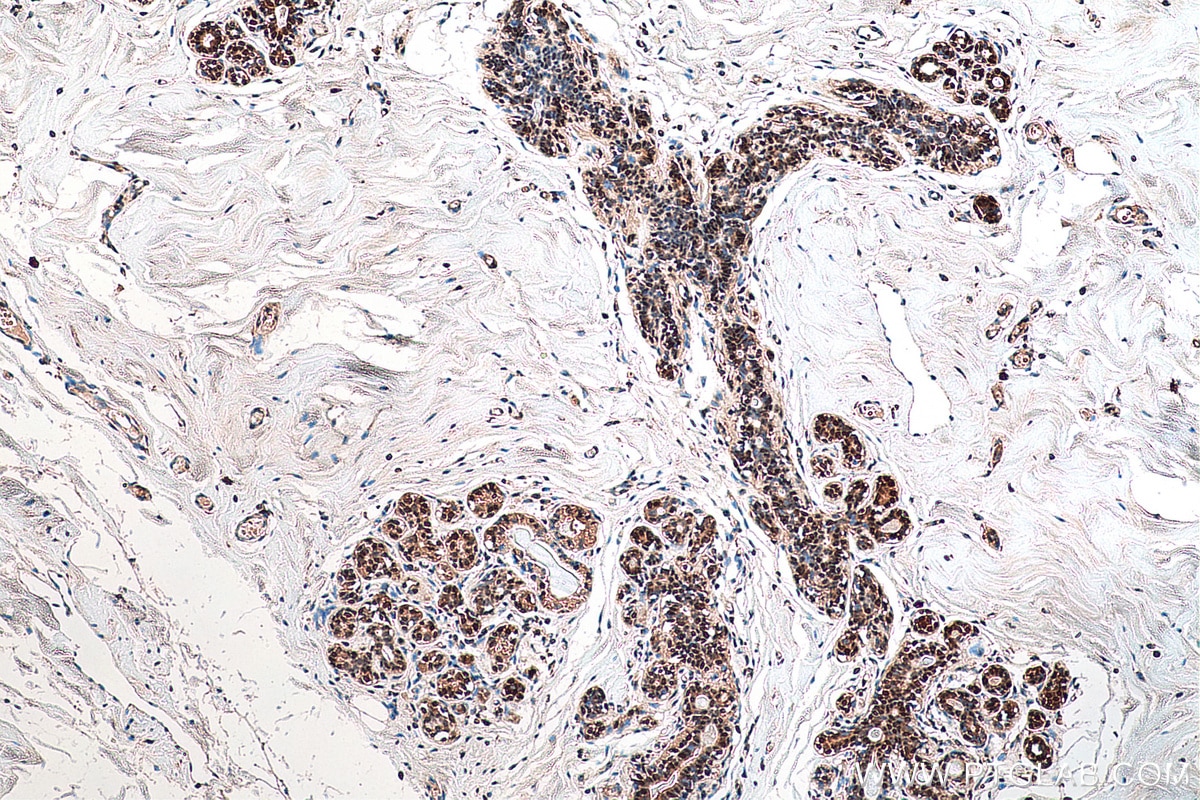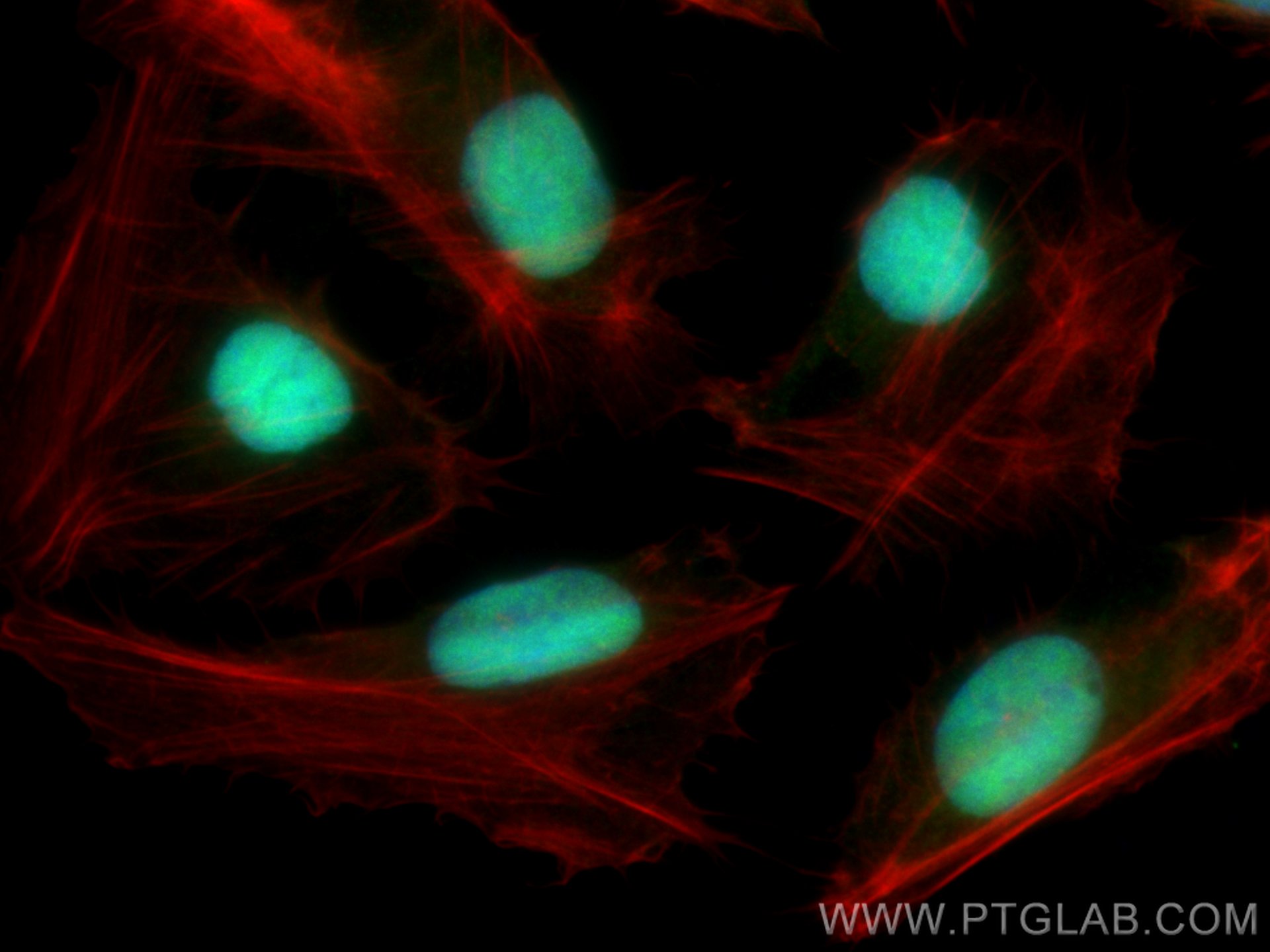- Phare
- Validé par KD/KO
Anticorps Polyclonal de lapin anti-DNAJC9
DNAJC9 Polyclonal Antibody for WB, IHC, IF/ICC, ELISA
Hôte / Isotype
Lapin / IgG
Réactivité testée
Humain, rat, souris
Applications
WB, IHC, IF/ICC, ELISA
Conjugaison
Non conjugué
N° de cat : 25444-1-AP
Synonymes
Galerie de données de validation
Applications testées
| Résultats positifs en WB | cellules HEK-293, cellules HeLa, cellules Raji, cellules SH-SY5Y |
| Résultats positifs en IHC | tissu de cancer du sein humain, tissu de cancer du côlon humain, tissu de côlon de rat, tissu de côlon de souris il est suggéré de démasquer l'antigène avec un tampon de TE buffer pH 9.0; (*) À défaut, 'le démasquage de l'antigène peut être 'effectué avec un tampon citrate pH 6,0. |
| Résultats positifs en IF/ICC | cellules U2OS, |
Dilution recommandée
| Application | Dilution |
|---|---|
| Western Blot (WB) | WB : 1:1000-1:4000 |
| Immunohistochimie (IHC) | IHC : 1:50-1:500 |
| Immunofluorescence (IF)/ICC | IF/ICC : 1:50-1:500 |
| It is recommended that this reagent should be titrated in each testing system to obtain optimal results. | |
| Sample-dependent, check data in validation data gallery | |
Applications publiées
| WB | See 4 publications below |
Informations sur le produit
25444-1-AP cible DNAJC9 dans les applications de WB, IHC, IF/ICC, ELISA et montre une réactivité avec des échantillons Humain, rat, souris
| Réactivité | Humain, rat, souris |
| Réactivité citée | Humain |
| Hôte / Isotype | Lapin / IgG |
| Clonalité | Polyclonal |
| Type | Anticorps |
| Immunogène | DNAJC9 Protéine recombinante Ag22123 |
| Nom complet | DnaJ (Hsp40) homolog, subfamily C, member 9 |
| Masse moléculaire calculée | 260 aa, 30 kDa |
| Poids moléculaire observé | 30-35 kDa |
| Numéro d’acquisition GenBank | BC136507 |
| Symbole du gène | DNAJC9 |
| Identification du gène (NCBI) | 23234 |
| Conjugaison | Non conjugué |
| Forme | Liquide |
| Méthode de purification | Purification par affinité contre l'antigène |
| Tampon de stockage | PBS with 0.02% sodium azide and 50% glycerol |
| Conditions de stockage | Stocker à -20°C. Stable pendant un an après l'expédition. L'aliquotage n'est pas nécessaire pour le stockage à -20oC Les 20ul contiennent 0,1% de BSA. |
Informations générales
DNAJC9, DnaJ homolog subfamily C member 9, acts as a dual histone chaperone and heat shock co-chaperone (PMID: 33857403). As a histone chaperone, DNAJC9 forms a co-chaperone complex with MCM2 and histone H3-H4 heterodimers (PMID: 33857403). DNAJC9 also plays a role as co-chaperone of the HSP70 family of molecular chaperone proteins. (PMID: 17182002, PMID: 33857403). DNAJC9 exhibits activity to assemble histones onto DNA (PMID: 33857403). DNAJC9 is an essential protein in many cancer cell types and the levels of the protein correlate with the rates at which cancer cells proliferate.
Protocole
| Product Specific Protocols | |
|---|---|
| WB protocol for DNAJC9 antibody 25444-1-AP | Download protocol |
| IHC protocol for DNAJC9 antibody 25444-1-AP | Download protocol |
| IF protocol for DNAJC9 antibody 25444-1-AP | Download protocol |
| Standard Protocols | |
|---|---|
| Click here to view our Standard Protocols |
Publications
| Species | Application | Title |
|---|---|---|
Sci Rep Label-free Quantitative Analysis of Protein Expression Alterations in miR-26a-Knockout HeLa Cells using SWATH-MS Technology. | ||
J Med Virol DNAJC9 Binds to and Enhances the Transcription of Hepatitis B Virus cccDNA by Recruiting Histone H3.3 |
Avis
The reviews below have been submitted by verified Proteintech customers who received an incentive for providing their feedback.
FH HELENA (Verified Customer) (04-26-2023) | Samples correspond to activated human primary CD4+ T cells after knock-out of DNAJC9 by CRISPR/CAS9.
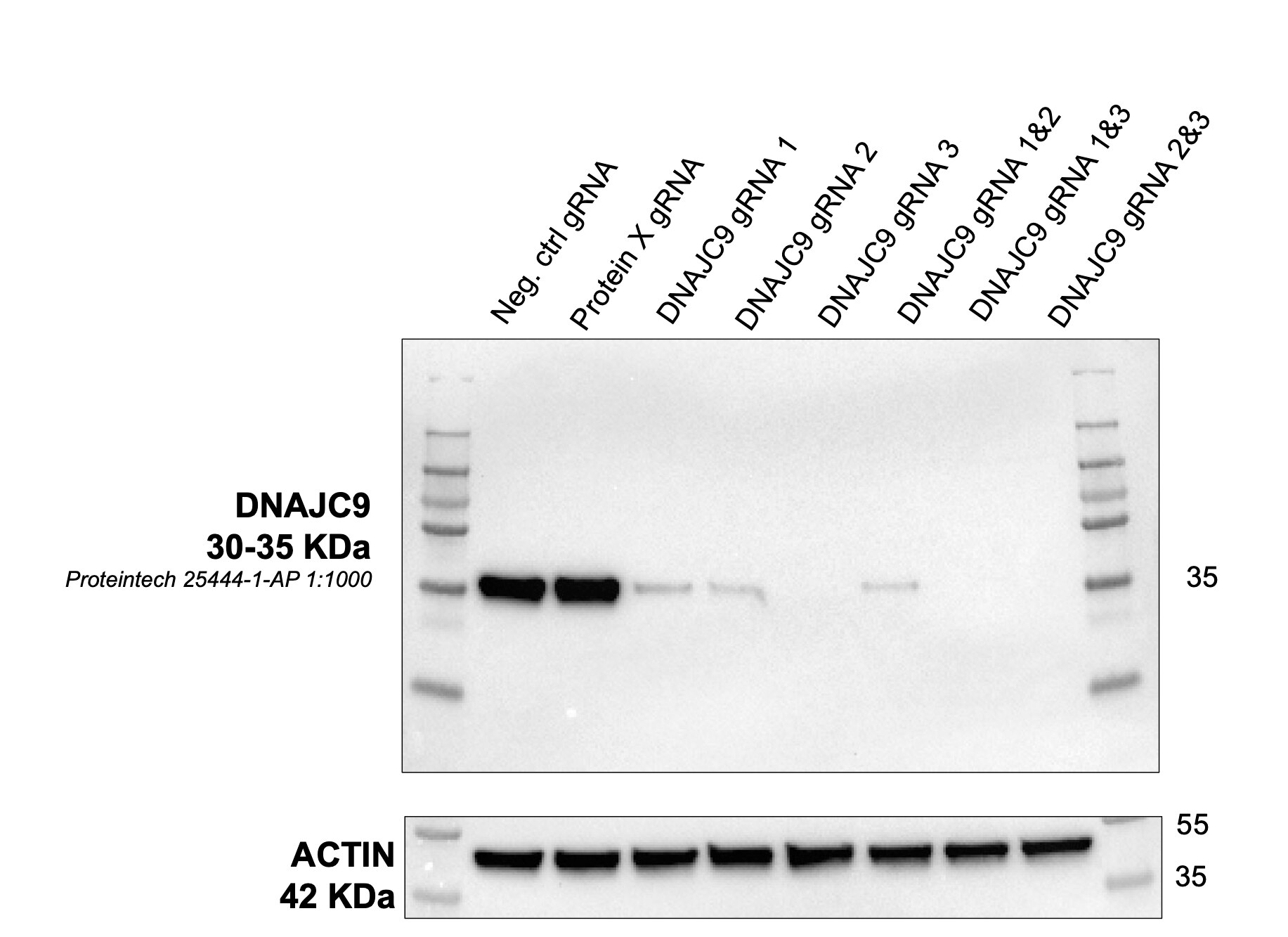 |
FH Sven (Verified Customer) (11-27-2021) | Works very well on western blot for human and mouse tissue (1:5000 dilution in TBS-T with 50% glycerol, 2% BSA, 0.02% NaN3). Antiboydy specificity was validated by DNAJC9 knockout cells
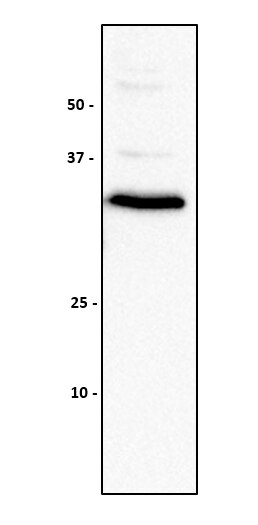 |
